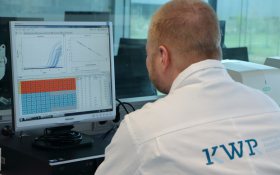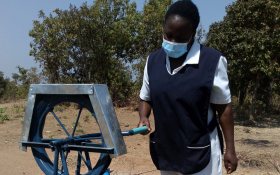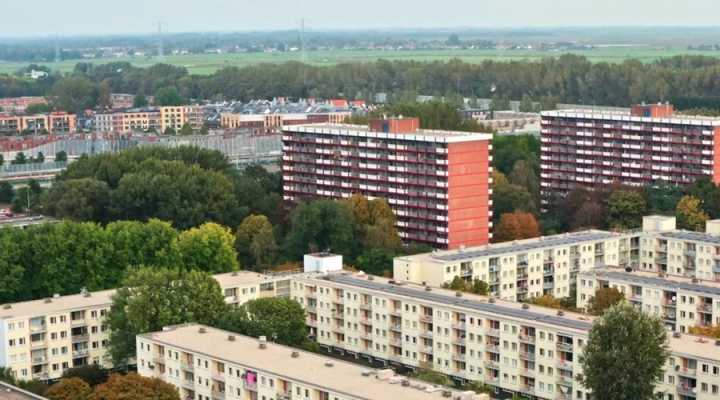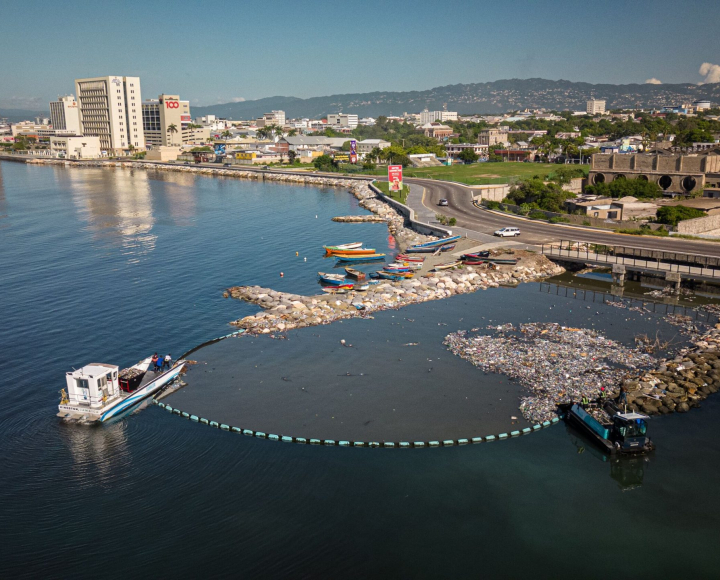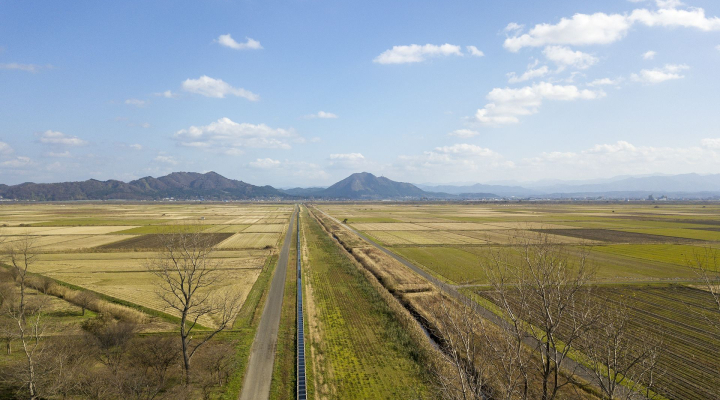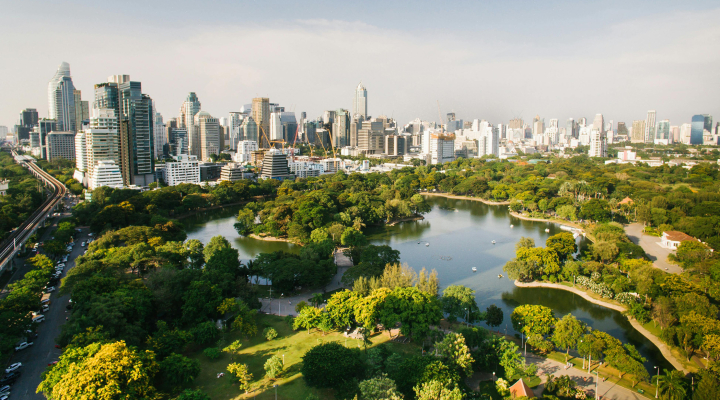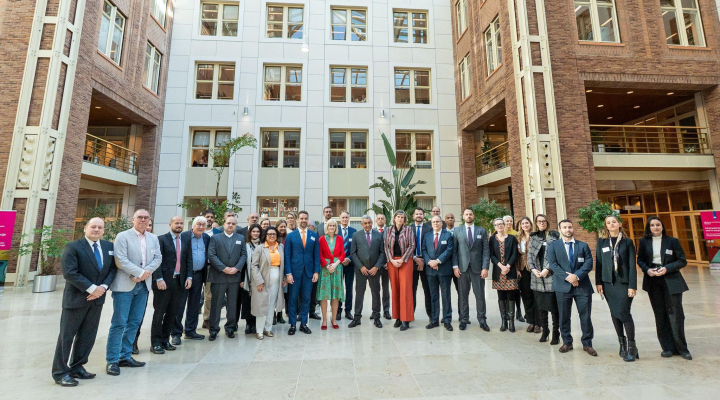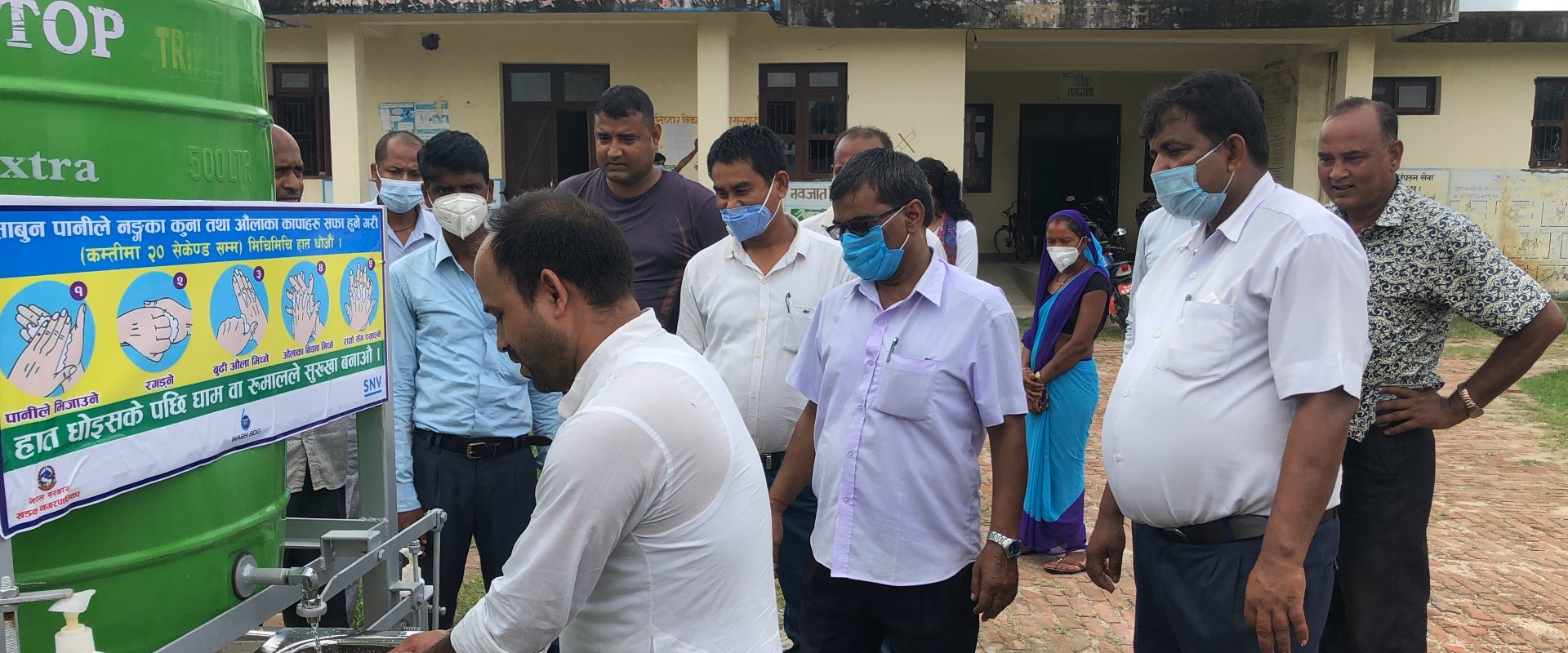
More awareness for handwashing helps Nepal to fight Covid
A team of SNV Nepal supports local authorities with technical expertise in handwashing as an important means to fight Covid-19, next to distancing and contact-free measures.
As the pandemic continues to unravel, the team has had to rethink some of its methods as water supply became critical.
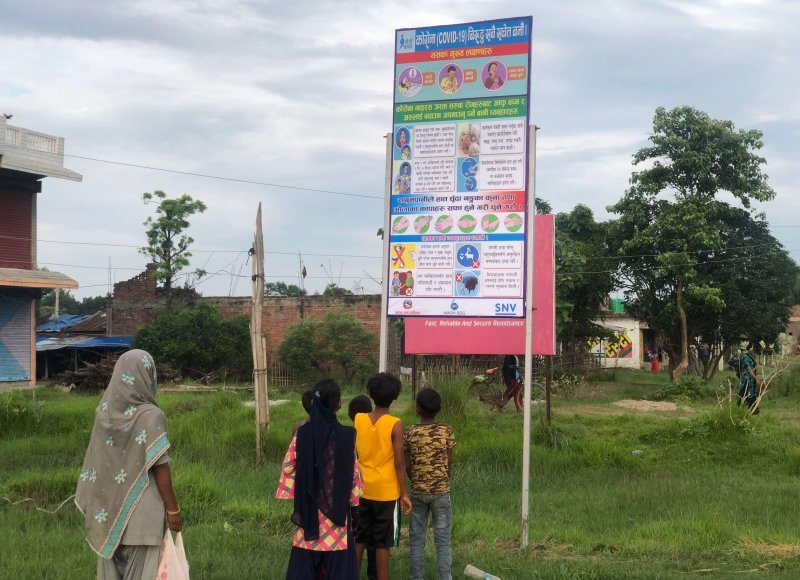

Raising awareness
COVID-19 mitigation measures in Nepal have largely revolved around raising awareness in disease transmission and introducing hand hygiene, contact-free and distancing measures. This has been reported by the SNV staff in Nepal in a blog on the SNV-website.
In support of government initiatives, SNV has been engaged in micro-level community messaging coupled with broadcasting messages via local radio stations, loudspeaker cars or hoarding boards. To aid healthcare facilities and communities in practising handwashing with soap, foot-operated disability-inclusive handwashing stations – based on a design developed by SNV – were installed across the country.
SNV reports the installation of 60 handwashing stations in health care facilities, and 100 smaller public handwashing stations for the use of communities.
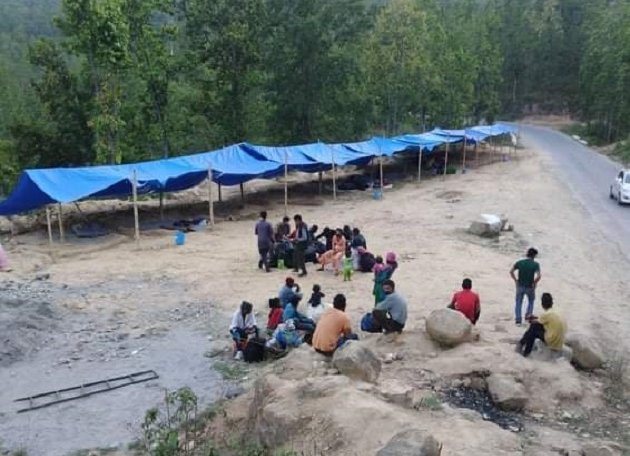

Returning migrant workers
Despite restrictions to movement, several points of entry running along the Nepal-India border remained open throughout the lockdown, mainly for returning migrant workers in India. The returnees spend 14 days in quarantine centres set up by the Government of Nepal in all districts. As of 1 July, 48,000 people were staying in quarantine centres across the country prior to reunite with their communities.
Birendranagar city holds one of the provincial checkpoints to control the movement of these refugees and has been overwhelmed by the number people that pass. Of which many travel on foot. The city asked SNV to assist in identifying the immediate water and sanitation needs of these immigrants.
Changing water needs
Within their limited resources, the SNV-team mobilised nearly 3,000 litres of bottled water for swift dispatch to the Birendranagar provincial checkpoint to assist returnees immediately.
However, after distributing almost 1,000 litres of water, the focus moved from the checkpoint to the nearby quarantine centres. The Red Cross saw traffic at the checkpoint slowing down, so the remaining 2,000 litres of water was dispatched to these quarantine centres by end June.




